|
 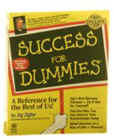 SELF-IMPROVEMENT SELF-IMPROVEMENT
Never
before in history have there been so many resources to draw
on to improve oneself. Below are some of
the better sources for becoming a more successful, well
balanced, happy and informed person. Most of this information
will not be found in our educational systems or
churches.
|
|
Two
Versions of The Secret
Please
note that there are two versions of
The
Secret movie
listed below. The
first version featured the works of Abraham-Hicks. That
portion of the movie was omitted
in the final, extended version that most will either view
online and/or purchase.
The work of Abraham-Hicks is generally not accepted by
Christians because of it's basis on channeling,
a practice condemned
in the Bible.
|
|
5
Ways to Use the Internet for Self-Improvement
10
Steps to Being Happier and Healthier
10
Things I Wish I Knew When I Was Your Age
11
Forgotten Laws -
Highly recommended.
20
Alternatives for Your Kids to Watching TV
50
Habits of Successful People
80/20
Rule
800
Numbers - Hard to find listings.
Accomplish
Great Things
Ace
Your Exams
Al-Anon/Alateen
- For
drinking or drug problems of others.
The
Art of Thinking - Good information even if you don't buy the package.
Attracting
Abundance
The Best High School Valedictorian Speech
Beyond
the Secret - New video. Buy it here.
Biblical
Relationships
Blazers
- Make all the difference in women getting noticed.
 Bob
Proctor
- One of the leading Motivational Speakers and
Success Coaches of our time. Bob
Proctor
- One of the leading Motivational Speakers and
Success Coaches of our time.
Bob
Proctor Audio Message
Bob
Proctor Cruises - 2008 cruise is Oct 19.
Bob
Proctor Interview
Bob
Proctor Seminars
Bob
Proctor Youth
Book
of Life -
Inspirational Power Point presentation.
British
vs American English
Can
Anyone Make $25K
a Month?
Character
Counts
Churches
Network for Non-Violence
- Non-violent Christian parenting.
College
Attendance
College
Degree? 1
College
Degree? 2 - A waste of time?
College
Degree? 3 - A waste of money?
College
Degree? 4
- A hoax or a financial disaster?
College
Degree 5 - Dangerous campuses.
College
Degree 6
- How the universities betray students.
College Degree 7 - Seven reasons not
to send your kids to college.
College
Degree 8 - Student debt for life?
College
Degree 9 - Get paid to not go to college.
College
Degree 10 - Debt for life.
College
Degree 11 - One example of an alternative.
College
Degree 12 - The more educated you are, the less you
understand.
Communication
Secrets
Confidence
Converting
the Brainwashed
Core
Values
Cyberparent
The
Dash Movie - Inspirational.
Dating
Advice - Don't ask, do tell. By Rabbi Daniel Lapin.
Dating...End
of Courtship - Why we are not happy.
Dating
Culture
Domestic
Management
Dreams
1
Dreams
2
Dreams
3
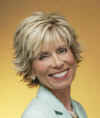 Dr.
Laura Schlessinger Dr.
Laura Schlessinger
Dr.
Phil McGraw
Dr.
Toni Grant
Dress
- How teen gals should dress.
Education
- Illuminati
control of all courses.
EFT
for Success
Female
Advice
Femininity
Financial
Success with EFT
Foundations
Magazine
411
- Free
Directory Assistance
Gender
Differences Videos
Geny
Mill - I want to help Generation Y Millennials.
Goal
33 - For youth.
Goals
Happiness
How
to Find A Good Wife or Husband
How
to Find What You Love to Do
The Incredibly Depressing Answers College Students Gave When Asked What the Holocaust Was and Where it Began
InFiveSteps.com
Insight
of the Day
International
Calls for Free
Internet
Dating
Intuition
Inspirational
& Motivational PowerPoint Slide Shows
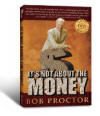 It's
Not About the Money
- Why people never become wealthy. It's
Not About the Money
- Why people never become wealthy.
Job
Tips You Didn't Get in College
The
Law of Attraction - The website for "The Secret" movie.
Lean Teen Self Esteem
- Weight loss for teens.
|
Legacy
of Hope - Susie Vanderlip's program of making healthy
choices. Watch her video above.
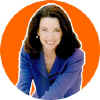 Legacy
of Hope - Blogspot Legacy
of Hope - Blogspot
Legacy
of Hope - MySpace.com
Life
is Simple, Hard but Simple - Free PDF download.
Lost
Generation - Excellent video for
young people.
Love
Lies
Marriage
Spring Cleaning
Machiavelli
Personality Test
Master
Key System
Messages
for Your Children
The
Millionaire Mindset - Free book
courtesy of Bob Proctor.
Millionaires
Money
and Markets
Money
Download
- By Bob Proctor, biblically based success coach.
Moral
Character
Motivation
Speakers
Multiple
Sources of Income
Nerds
Optical
Illusion
The
Opus - The movie.
Perceptions/Beliefs
Perfect Reason to Feel Grateful for What You Have
Personals
for Raw Food Fans
Photo
Reading - Read 25,000 words per minute.
Physical
Attraction
Positive
Thinking
The
Power of Mentorship
- Free book.
The
Power of Mentorship
- The Movie.
Quality
Films Do Exist
Quantum
Lifeskills
Rags
to Riches
- How the world's
billionaires made it.
Relationships
1
Relationships
2
Relationships
3 - Why you should get married.
Respectful
Kids
Retirement
School
Dances
Science
of Getting Rich Free Lessons - Sign
up for
7 free lessons.
The
Secret DVD - Purchase it here. The
DVD has much more information than the online video, including
a lengthy interview with the producer. You'll also want to
share this DVD with others.
The
Secret Movie
- Watch it online from the
official website.
The
Secret Movie
- The first 20
minutes.
The
Secret Video
- Brief excerpts from the movie, "The Secret".
Secrets
of Happiness
 Secrets
to Living Longer and Happier Secrets
to Living Longer and Happier
Self-confidence
Self
Esteem Through EFT
Self-Improvement
Videos
Sense
of Humor
Sex
1
- A host of well researched articles on sex and
relationships - and the surprising origin of today's
sexual behaviors.
Sex
2
- God's viewpoint regarding sex.
Sex
3 - Promoted by
the Illuminati
Sexual
Chemistry
Solution
to All Problems
Spanking Controversy
- By Samuel Martin.
Star
In Us Group
- One new
millionaire every 5 days!
Student
Success
Success
Success
for Dummies
Talk
Less Listen More
Talk
Less Listen More - The free book download.
Tatooing
Teen
Hotline
- 1-877-968-8454
or 1-310-855-4673.
Ted.com - Interesting speakers on all
subjects.
Think
and Grow Rich - Timeless classic on improving
your life.
Think
and Grow Rich - Free PDF download
of the book.
ThirdAge
Time
Gets Better with Age
The
Ultimate Success Secret
- Free book download.
Values
Teaching
Vision
Board Video
What
the Bleep Do We Know?
What
the Bleep Study Guide
What
the Bleep Do We Know?
- The movie. Makes you
think about how we perceive things.
What
the Bleep Do We Know & EFT
What
to Do With the Rest of Your Life - Excellent video.
Word
of the Day 1
Word
of the Day 2
Working
With The Law
The
World as a Village
You
Were Born Rich
|
|

|
|

|
|
Recommended
Books for
TODAY'S YOUNG ADULTS
Click
on each book below and
the one above for more information.
|
|

|
|

|

|

|

|
|
The
Secret - The First 20 Minutes
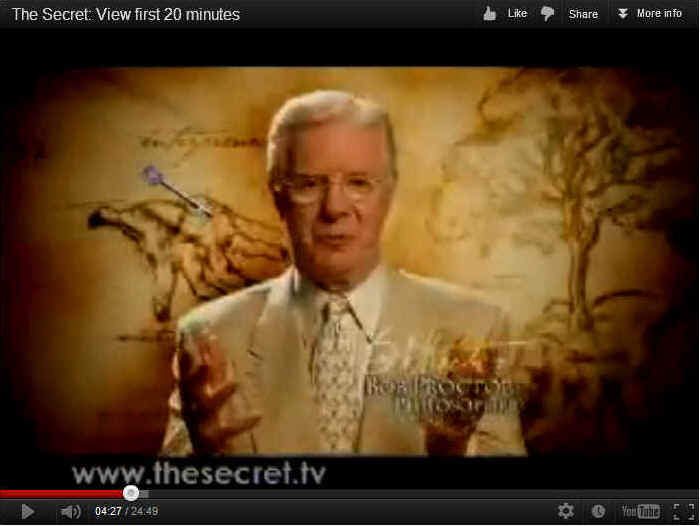
|
|
Napoleon
Hill on Andrew Carnegie's
'Power to Direct Your Mind And Manifest Your Destiny'
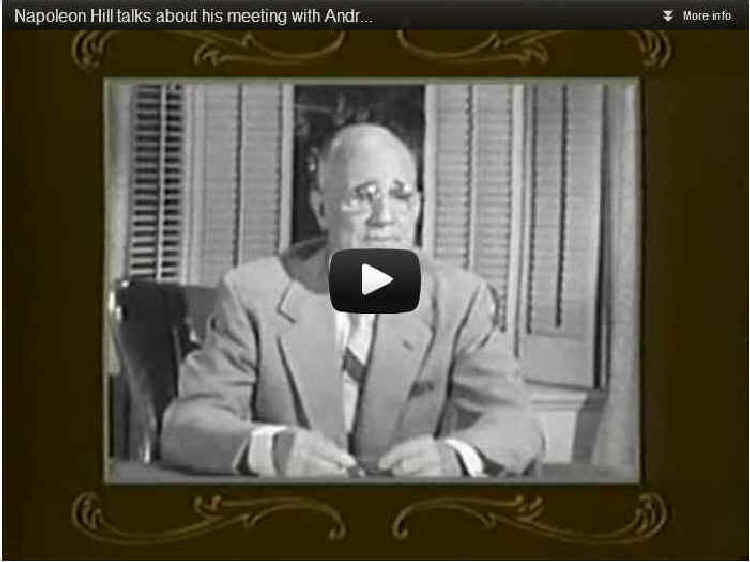
|
|
21
Tips for Success
From
the many emails received daily, one has stood out that will
benefit TODAY'S YOUNG
ADULTS. It is one of those
"how-to-be-successful-in-life" emails:
-
Give
people more than they expect and do it cheerfully.
-
Marry
a man/woman you love to talk to. As you get older, their
conversational skills will be as important as any other.
-
Don't
believe all you hear, spend all you have or sleep all you
want.
-
When
you say, "I love you," mean it.
-
When
you say, "I'm sorry," look the person in the
eye.
-
Be
engaged at least six months before you get married.
-
Believe
in love at first sight.
-
Never
laugh at anyone's dreams. People who don't have dreams
don't have much.
-
Love
deeply and passionately. You might get hurt but it's the
only way to live life completely.
-
In
disagreements, fight fairly. No name-calling.
-
Don't
judge people by their relatives.
-
Talk
slowly, but think quickly.
-
When
someone asks you a question you don't want to answer,
smile and ask, "Why do you want to know?"
-
Remember
that great love and great achievements involve great risk.
-
Say
"bless you" when you hear someone sneeze.
-
When
you lose, don't lose the lesson.
-
Remember
the three R's: Respect for self; Respect for others; and
Responsibility for all your actions.
-
Don't
let a little dispute injure a great friendship.
-
When
you realize you've made a mistake, take immediate steps to
correct it.
-
Smile
when picking up the phone. The caller will hear it in your
voice.
-
Spend
some time alone.
|
|
INSTRUCTIONS
for LIFE
-
Take
into account that great love and great achievements
involve great risk.
-
When
you lose, don’t lose the lesson.
-
Follow
the three R’s:
Respect for self,
Respect for others and
Responsibility for all your actions.
-
Remember
that not getting what you want is sometimes a
wonderful stroke of luck.
-
Learn
the rules so you know how to break them properly.
-
Don’t
let a little dispute injure a great relationship.
-
When
you realize you’ve made a mistake, take immediate
steps to correct it.
-
Spend
some time alone every day.
-
Open
your arms to change, but don’t let go of your values.
-
Remember
that silence is sometimes the best answer.
-
Live
a good, honorable life. Then when you get older and
think back, you’ll be able to enjoy it a second time.
-
A
loving atmosphere in your home is the foundation for
your life.
-
In
disagreements with loved ones, deal only with the
current situation. Don’t bring up the past.
-
Share
your knowledge. It is a way to achieve immortality.
-
Be
gentle with the earth.
-
Once
a year, go someplace you’ve never been before.
-
Remember
that the best relationship is one in which your
love for each other exceeds your need for each other.
-
Judge
your success by what you had to give up in order
to get it.
-
Approach
love and cooking with reckless abandon.
|
|
100
Quotes from the Movie, "THE SECRET"
1.
We all work with one infinite power.
2.
The Secret is the Law of Attraction (LOA).
3. Whatever is going on in your mind is what you are
attracting.
4.
We are like magnets - like attract like. You become AND
attract what you think.
5. Every thought has a frequency. Thoughts send out a magnetic
energy.
6.
People think about what they don't want and attract more of
the same.
7. Thought = creation. If these thoughts are attached to
powerful emotions (good or bad) that speeds the creation.
8.
You attract your dominant thoughts.
9. Those who speak most of illness have illness, those who
speak most of prosperity have it..etc..
10.
It's not "wishful" thinking.
11. You can't have a universe without the mind entering into
it.
12.
Choose your thoughts carefully .. you are a masterpiece of
your life.
13. It's OK that thoughts don't manifest into reality
immediately (if we saw a picture of an elephant and it
instantly appeared, that would be too soon).
14.
EVERYTHING in your life you have attracted .. accept that fact
it's true.
15. Your thoughts cause your feelings.
16.
We don't need to complicate all the "reasons" behind
our emotions. It's much simpler than that. Two categories ..
good feelings, bad feelings.
17. Thoughts that bring about good feelings mean you are on
the right track. thoughts that bring about bad feelings means
you are not on the right track.
18.
Whatever it is you are feeling is a perfect reflection of what
is in the process of becoming.
19. You get exactly what you are FEELING.
20.
Happy feelings will attract more happy circumstances.
21. You can begin feeling whatever you want (even if it's not
there).. the universe will correspond to the nature of your
song.
22.
What you focus on with your thought and feeling is what you
attract into your experience.
23. What you think and what you feel and what actually
manifests is ALWAYS a match - no exception.
24.
Shift your awareness.
25. "You create your own universe as you go along"
Winston Churchill.
26.
It's important to feel good ( ( ( (((good))) ) ) ).
27. You can change your emotion immediately by thinking of
something joyful, or singing a song, or remembering a happy
experience.
28.
When you get the hang of this, before you know it you will
KNOW you are the creator.
29. Life can and should be phenomenal .. and it will be when
you consciously apply the Law of Attraction.
30.
Universe will re-arrange itself accordingly.
31. Start by using this sentence for all of your wants:
"I'm so happy and grateful now that.... ".
32.
You don't need to know HOW the universe is going to rearrange
itself.
33. LOA is simply figuring out for yourself what will generate
the positive feelings of having it NOW.
34.
You might get an inspired thought or idea to help you move
towards what you want faster.
35. The universe likes SPEED. Don't delay, don't second-guess,
don't doubt..
36.
When the opportunity or impulse is there ... ACT.
37. You will attract everything you require - money, people,
connections.. PAY ATTENTION to what's being set in front of
you.
38.
You can start with nothing ... and out of nothing or no way - a
WAY will be provided.
39. HOW LONG??? No rules on time .. the more aligned you are
with positive feelings the quicker things happen.
40.
Size is nothing to the universe (unlimited abundance if that's
what you wish) We make the rules on size and time.
41. No rules according to the universe .. you provide the
feelings of having it now and the universe will respond.
42.
Most people offer the majority of their thought in response to
what they are observing (bills in the mail, being late, having
bad luck...etc.).
43. You have to find a different approach to what is through a
different vantage point.
44.
"All that we are is a result of what we have
thought" - Buddha.
45. What can you do right now to turn your life around??
Gratitude.
46.
Gratitude will bring more into our lives immediately.
47. What we think about and THANK about is what we bring about.
48.
What are the things you are grateful for?? Feel the
gratitude... focus on what you have right now that you are
grateful for.
49. Play the picture in your mind - focus on the end result.
50.
VISUALIZE!!! Rehearse your future.
51. VISUALIZE!!! See it, feel it! This is where action begins.
52.
Feel the joy .. feel the happiness :o)
53. An affirmative thought is 100 times more powerful than a
negative one.
54.
"What this power is, I cannot say. All I know is that it
exists." Alexander Graham Bell.
55. Our job is not to worry about the "How". The
"How" will show up out of the commitment and belief
in the "what".
56.
The Hows are the domain of the universe. It always knows the
quickest, fastest, most harmonious way between you and your
dream.
57. If you turn it over to the universe, you will be surprised
and dazzled by what is delivered ... this is where magic and
miracles happen.
58.
Turn it over to the universe daily... but it should never be a
chore.
59. Feel exhilarated by the whole process ... high, happy, in
tune.
60.
The only difference between people who are really living this
way is they have habituated ways of being.
61. They remember to do it all the time.
62.
Create a Vision Board .. pictures of what you want to attract
.. every day look at it and get into the feeling state of
already having acquired these wants.
63. "Imagination is everything. It is the preview of
life's coming attractions." Albert Einstein.
64.
Decide what you want ... believe you can have it, believe you
deserve it, believe it's possible for you.
65. Close your eyes and visualize having what you already want
- and
the feeling of having it already.
66.
Focus on being grateful for what you have already ... enjoy
it!! Then release into the universe. The universe will
manifest it.
67. "Whatever the mind of man can conceive, it can
achieve" W. Clement Stone.
68.
Set a goal so big that if you achieved it, it would blow your
mind.
69. When you have an inspired thought, you must trust it and
act on it.
70.
How can you become more prosperous?? INTEND IT!!
71. 'Checks are coming in the mail regularly'... or change
your bank statement to whatever balance you want in there...
and get behind the feeling of having it.
72.
Life is meant to be abundant in ALL areas...
73. Go for the sense of inner joy and peace then all outside
things appear.
74.
We are the creators of our universe.
75. Relationships: Treat yourself the way you want to be
treated by others .. love yourself and you will be loved.
76.
Healthy respect for yourself.
77. For those you work with or interact with regularly .. get
a notebook and write down positive aspects of each of those
people.
78.
Write down the things you like most about them (don't expect
change from them). Law of attraction will not put you in the
same space together if you frequencies don't match.
79. When you realize your potential to feel good, you will ask
no one to be different in order for you to feel good.
80.
You will free yourself from the cumbersome impossibilities of
needing to control the world, your friends, your mate, your
children...
81. You are the only one that creates your reality.
82.
No one else can think or feel for you ... its YOU ... ONLY YOU.
83. Health: thank the universe for your own healing. Laugh,
stress free happiness will keep you healthy.
84.
Immune system will heal itself.
85. Parts of our bodies are replaced every day, every week...
etc... Within a few years we have a brand new body.
86.
See yourself living in a new body. Hopeful = recovery. Happy =
happier biochemistry. Stress degrades the body.
87. Remove stress from the body and the body regenerates
itself. You can heal yourself.
88.
Learn to become still ... and take your attention away from
what you don't want, and place your attention on what you wish
to experience.
89. When the voice and vision on the inside become more
profound and clear than the opinions on the outside, then you
have mastered your life.
90.
You are not here to try to get the world to be just as you
want it. You are here to create the world around you that you
choose.
91. And allow the world as others choose to see it, exist as
well.
92.
People think that if everyone knows the power of the LOA there
won't be enough to go around ... This is a lie that's been
ingrained in us and makes so many greedy.
93. The truth is there is more than enough love, creative
ideas, power, joy, happiness to go around.
94.
All of this abundance begins to shine through a mind that is
aware of it's own infinite nature. There's enough for
everyone. See it. Believe it. It will show up for you.
95. So let the variety of your reality thrill you as you
choose all the things you want.. get behind the good feelings
of all your wants.
96.
Write your script. When you see things you don't want, don't
think about them, write about them, talk about them, push
against them, or join groups that focus on the don't wants...
remove your attention from don't wants.. and place them on do
wants.
97. We are mass energy. Everything is energy. EVERYTHING.
98.
Don't define yourself by your body ... it's the infinite being
that's connected to everything in the universe.
99. One energy field. Our bodies have distracted us from our
energy. We are the infinite field of unfolding possibilities.
The creative force.
100.
Are your thoughts worthy of you? If not - NOW is the time to
change them. You can begin right where you are right now.
Nothing matters but this moment and what you are focusing your
attention on.
|
 If
you have 10 reasons to be sad and depressed, there are
100 reasons to be happy. It all depends on the way you
handle stress and problems. If you really want to be
happy, you first need to make a conscious decision
that you are going to be happy no matter what. There
are numerous benefits of being happy - you will be
more healthier and have a positive outlook towards
life. If
you have 10 reasons to be sad and depressed, there are
100 reasons to be happy. It all depends on the way you
handle stress and problems. If you really want to be
happy, you first need to make a conscious decision
that you are going to be happy no matter what. There
are numerous benefits of being happy - you will be
more healthier and have a positive outlook towards
life.
Here
are some ways to bring back the happiness in your
life:
1.
Stop trying to be perfect.
Don’t expect
perfection from yourself or from anybody. You don’t
need to impress people around you and you don’t have
to get everything done perfectly.
“Nobody
in this world is perfect. I am Nobody”
2.
Be happy and satisfied with what you have.
Stop
comparing with others at every stage, this will in
fact add to your misery. Be happy and content with
your life. Remove the feelings of jealousy and enmity.
3.
Schedule some time for yourself.
Give
yourself one hour each day when you can truly relax
and enjoy yourself. Do some exercise, work on a hobby,
go for a walk, or read a book. Pamper your self with
some massages or beauty therapies. Meditate or pray to
God. This will renew your energy and concentration.
4.
If you are too stressed at work, take a break and
refresh your energy. Go for a holiday with
your family and friends. Explore new places. Taking
breaks helps your body recover the lost energy. You
may take short or long breaks, depending on your work
and stress levels. When you get back to work after a
break, your concentration and focus improves a great
deal and you are more motivated.
5.
Don’t be alone all the time. Go out with
your friends and talk to them on the phone regularly.
Watch a movie, go shopping or do things that you
always loved but did not get the time because of your
busy schedules. Call your friends home and watch a
funny movie together.
6.
If you are a working parent, take a break from work
and spend time with your kids. Or play with
your pets. Visit your relatives and throw a party for
them. Dance and sing with them.
7.
Be grateful to people around you. Be thankful
for even small favors and blessings.
8.
Help Others. It has been observed that
helping others gives you immense satisfaction and
happiness. Make someone’s life more beautiful by
contributing in your own small way.
9.
Re-assess your priorities. Spend time with
your family and pray to God. Stay in the present. Do
not waste time regretting your past or worrying about
the future.
10.
Laugh out loud at least once in a day and keep
smiling. Focus on things that keep you happy
instead of those that keep you down. Forget your
worries and pains, everybody in this world, has some
problems. But it all depends on the way you deal with
it.
|
From
Psychology
Today
The
Secrets of Happiness
Provided
by: 
Forget
about money. Don't fret about youth. Acting happy is
likely to make you happy.
There
are happy people. Researchers at the National Institute
on Aging found that well-being is strongly influenced by
enduring characteristics of the individual. In a 10-year
study, they found that, regardless of whether their
marital status, job, or residence had changed, people
with a happy disposition in 1973 were still happy in
1983. There's good news in these findings: Given the
right disposition, in the face of difficulty, people can
still find renewed happiness.
What
makes for a happy disposition? Who are these people who
stay basically up despite life's downs? There are four
important traits of happy people:
I:
Self-esteem: Happy People Like Themselves
During
the 1980s, no topic in psychology was more researched
than the self. Many reports showed the dividends of high
self-esteem--in some University of Michigan studies of
well-being in America, the best predictor of general
life satisfaction was not satisfaction with family life,
friendships, or income, but satisfaction with self.
People who like and accept themselves feel good about
life in general.
This
will come as no surprise to anyone attuned to the pop
psychology of our age. Self-help books exhort us to
respect ourselves, to dwell on our good points, to be
positive. Cut the self-pity. Stop the negative talk. To
discover love, first love yourself. We've heard the
message: In a 1989 Gallup poll, 85 percent of Americans
rated "having a good self-image or
self-respect" as very important; 0 percent rated it
unimportant.
Actually,
most of us have a good reputation with ourselves. In
studies of self-esteem, even low-scoring people respond
in the mid-range of scores. (A "low"
self-esteem person responds to statements such as
"I have good ideas" with a qualifying
adjective such as "somewhat" or
"sometimes.")
Moreover,
one of the most provocative yet firmly established
conclusions of social psychology concerns the potency of
"self-serving bias." People accept more
responsibility for good deeds than for bad, for
successes than for failures. The question "What
have I done to deserve this?" is one we ask of our
troubles, not our successes--those we assume we deserve.
On
nearly any subjective or socially desirable dimension,
most people actually see themselves as better than
average. We also remember and justify our past actions
in self-enhancing ways, are quicker to believe more
flattering descriptions of ourselves than unflattering
ones, and overestimate the extent to which others
support our opinions and share our foibles. For most of
us, these "positive illusions" protect against
anxiety and depression. All of us at some time do feel
inferior--especially when comparing ourselves with those
who are a step or two higher on the ladder of status,
looks, or income. The deeper and more frequently we have
such feelings, the more unhappy we are. Therefore, we
function better with modest self-enhancing illusions.
A
healthy self-esteem, then, is both positive and
realistic. Because it is based on the genuine
achievement of realistic ideals, and on feeling accepted
for what one is, such self-esteem provides a strong
foundation for enduring joy.
II:
Optimism: Happy People Are Hope-Filled
Those
who agree that "with enough faith, you can do
almost anything" and that "when I undertake
something new, I expect to succeed" may be a bit
bubble-headed. But, for seeing the glass of life as
half-full rather than half-empty, they are usually
happier.
Optimists
are also healthier. Several studies reveal that a
pessimistic style of explaining bad events--saying,
"It's my fault, it's going to last, and it's going
to undermine everything"--makes us more vulnerable
to illness. Harvard graduates who were most pessimistic
when interviewed in 1946 were least healthy when
restudied in 1980. Virginia Tech students who reacted to
bad events pessimistically suffered more colds, sore
throats, and flu a year later. In general, optimistic
people are less bothered by various illnesses and
recover better from cancer and surgery.
Optimists
also enjoy greater success. Rather than see setbacks as
signs of their incompetence, they view them as flukes or
as suggesting the need for a new approach. A person who
confronts life with an attitude that often says
"Yes!" to people and possibilities lives with
far more joy and venturesomeness than do habitual
naysayers.
Yet
in affirming the great truth about optimism, let us also
remember a complementary truth about the perils of
unrealism. Unrealistic optimists may fail to take
sensible precautions. And consider the shame and
dejection that accompanies shattered expectations. If
you believe the inspirational messages of positive
thinkers, then whose fault is it if you don't march
upward from highs to higher highs? What do we conclude
when our marriages turn out to be less than we
romanticized, when we are less successful than we
dreamed?
At
such times, we have only ourselves to blame. When the
dream collapses, the biggest dreamers often fall the
hardest. Limitless optimism breeds endless frustrations.
The
recipe for well-being, then, requires neither positive
nor negative thinking alone, but a mix of ample optimism
to provide hope, a dash of pessimism to prevent
complacency, and enough realism to discriminate those
things we can control from those we cannot.
III:
Extroversion: Happy People Are Outgoing
In
study after study, extroverts--social, outgoing
people--report greater happiness and satisfaction with
life. The explanation seems partly temperamental.
"Extroverts are simply more cheerful and
high-spirited," report National Institute of Aging
researchers Paul Costa and Robert McCrae. Self-assured
people who walk into a room full of strangers and warmly
introduce themselves may also be more accepting of
themselves. Liking themselves, they are confident that
others will like them, too.
Such
attitudes tend also to be self-fulfilling, leading
extroverts to experience more positive events. When
University of Illinois researchers Ed Diener and Keith
Magnus studied students at the undergraduate level and
then again four years later as alumni, they found that
life had treated extroverts more kindly. Compared to
introverts, extroverts were more likely to have gotten
married, found good jobs, and made new, close friends.
Extroverted
people are more involved with others. They have a larger
circle of friends and they more often engage in
rewarding social activities. They experience more
affection and enjoy greater social support--an important
wellspring of well-being.
IV:
Personal Control: Happy People Believe They Choose Their
Destinies
Summarizing
the University of Michigan's nationwide surveys,
researcher Angus Campbell commented that "having a
strong sense of controlling one's life is a more
dependable predictor of positive feelings of well-being
than any of the objective conditions of life we have
considered." And the 15 percent of Americans who
feel in control of their lives and feel satisfied with
themselves have "extraordinarily positive feelings
of happiness."
Consider
your own sense of personal control. Would you agree with
the statement that "I don't have enough control
over the direction my life is taking" or that
"What happens to me is my own doing"? That
"The world is run by a few powerful people" or
that "The average person can influence government
decisions"? Those whose responses to such
statements reveal an "internal locus of
control" typically achieve more in school, cope
better with stress, and live more happily.
Increasing
people's control can noticeably improve their health and
morale as well. One study by Yale psychologist Judith
Rodin encouraged nursing-home patients to exert more
control--to make choices about their environment and to
influence policy. As a result, 93 percent became more
alert, active, and happy. Similar results have been
observed after allowing prisoners to move chairs and
control the lights and TV, and after enabling workers to
participate in decision making.
Happy,
too, are those who gain the sense of control that comes
with effective management of one's time. Unoccupied
time, especially for out-of-work people who aren't able
to plan and fill their time, is unsatisfying. Sleeping
late, hanging out, and watching TV leave an empty
feeling. For happy people, time is "filled and
planned; they are punctual and efficient," says
Oxford University psychologist Michael Argyle. "For
unhappy people, time is unfilled, open, and uncommitted;
they postpone things and are inefficient."
Establishing
pre-set deadlines for oneself--and then meeting
them--can lead to the delicious, confident feeling of
personal control.
Finally:
How To Be Happy
It's
easily enough said that happiness comes with having
positive self-esteem, feeling in control of our lives,
and having optimistic, outgoing dispositions, but how
can we strengthen such traits? If we wish we were
happier, can we somehow become more positive,
inner-directed, confident, and extroverted? Just how
malleable are we?
Well-meaning
advice to "be more outgoing" or to "have
a more cheerful outlook" can burden us with the
responsibility to choose our basic temperament. More
than such advice-givers realize, we bring our basic
dispositions with us into the world.
More
and more studies show that our basic personality traits
endure, especially after childhood. While developmental
psychologists are sometimes surprised by how often
troubled, unhappy children mature into competent,
successful adults, there is nonetheless an underlying
consistency to personality. After the end of the teen
years, traits such as outgoingness, emotional stability,
openness, agreeableness, and conscientiousness seem to
persist throughout adulthood.
But
it's also true that we have the power to affect our own
destinies, for we are the creators as well as the
creatures of our social worlds. We may be the products
of our past, but we are also the architects of our
future. Personality isn't programmed like eye color. The
predispositions we bring with us into the world leave
room for nurture's influence, and our own efforts as
well. What we do today shapes our world and ourselves
tomorrow.
If
social psychologists have proven anything during the
last 30 years, they have proven that the actions we take
leave a residue inside us. Every time we act, we amplify
the underlying idea or tendency behind it. Most people
presume the reverse: that our traits and attitudes
affect our behavior. While this is true to a certain
extent (though less so than commonly supposed), it is
also true that our traits and attitudes follow our
behavior. We are as likely to act ourselves into a new
way of thinking as to think ourselves into a new way of
acting.
There
is a practical moral here for us all. Do we wish to
change ourselves in some important way? Perhaps boost
our self-esteem? Become more optimistic and socially
assertive? Well, a potent strategy is to get up and
start doing that very thing. Don't worry that you don't
feel like it. Fake it. Pretend self-esteem. Feign
optimism. Simulate outgoingness.
In
experiments, people have been asked to write essays or
present themselves to an interviewer in either
self-enhancing or self deprecating ways. Those who act as
if they are exceptionally intelligent, caring, and
sensitive people later express higher self-esteem when
privately describing themselves to a different
researcher. This saying-becomes-believing effect is
harnessed by therapy techniques (such as behavior
therapy, rational-emotive therapy, and cognitive
therapy), each of which prods the clients into
practicing more positive talk and behavior.
Yes,
telling people to act or talk positively sounds like
telling people to be phony. But, as usually happens when
we step into some new role--perhaps our first days
"playing" parent, salesperson, or teacher--an
amazing thing happens: The phoniness gradually subsides.
We notice that our uncomfortable sense of being a
parent, for instance, no longer feels forced. The new
role--and the new behaviors and accompanying
attitudes--have begun to fit us as comfortably as an old
pair of blue jeans.
The
moral: Going through the motions can trigger the
emotions. Surely you've noticed. You're in a testy mood,
but when the phone rings you feign cheer while talking
to a friend. Strangely, after hanging up, you no longer
feel so grumpy. Such is the value of social
occasions--they impel us to behave as if we were happy,
which in fact helps free us from our unhappiness.
Granted,
we can't expect ourselves to become more upbeat and
socially confident overnight. But rather than limply
resign ourselves to our current traits and emotions, we
can stretch ourselves, step by step. Rather than waiting
until we feel like making those calls or reaching out to
that person, we can begin. If we are too anxious,
modest, or indifferent, we can pretend, trusting that
before long the pretense will diminish as our actions
ignite a spark inside--the spark that will lead to
happiness.
Parts
of this article were excerpted from The Pursuit of
Happiness: Who Is Happy--and Why, by David G. Myers,
Ph.D., copyright C) 1992 by William Morrow and Company
Inc.
|
|
This
was written by Regina Brett
The
Plain Dealer, Cleveland, Ohio
To
celebrate growing older, I once wrote the 45 lessons life
taught me. It is the most-requested column I've ever written.
My odometer rolls over to 50 this week, so here's an update:
1. Life isn't fair, but it's still good.
2. When in doubt, just take the next small step.
3. Life is too short to waste time hating anyone.
4. Don't take yourself so seriously. No one else does.
5. Pay off your credit cards every month.
6. You don't have to win every argument. Agree to disagree.
7. Cry with someone. It's more healing than crying alone.
8. It's OK to get angry with God. He can take it.
9. Save for retirement starting with your first paycheck.
10. When it comes to chocolate, resistance is futile.
11. Make peace with your past so it won't screw up the
present.
12. It's OK to let your children see you cry.
13. Don't compare your life to others'. You have no idea what
their journey is all about.
14. If a relationship has to be a secret, you shouldn't be in
it.
15. Everything can change in the blink of an eye. But don't
worry; God never blinks.
16. Life is too short for long pity parties. Get busy living,
or get busy dying.
17. You can get through anything if you stay put in today.
18. A writer writes. If you want to be a writer, write.
19. It's never too late to have a happy childhood. But the
second one is up to you and no one else.
20. When it comes to going after what you love in life, don't
take no for an answer.
21. Burn the candles, use the nice sheets, wear the fancy
lingerie. Don't save it for a special occasion. Today is
special.
22. Over prepare, then go with the flow.
23. Be eccentric now. Don't wait for old age to wear purple.
24. The most important sex organ is the brain.
25. No one is in charge of your happiness except you.
26. Frame every so-called disaster with these words: "In
five years, will this matter?"
27. Always choose life.
28. Forgive everyone everything.
29. What other people think of you is none of your business.
30. Time heals almost everything. Give time time.
31. However good or bad a situation is, it will change.
32. Your job won't take care of you when you are sick. Your
friends will. Stay in touch.
33. Believe in miracles.
34. God loves you because of who God is, not because of
anything you did or didn't do.
35. Whatever doesn't kill you really does make you stronger.
36. Growing old beats the alternative -- dying young.
37. Your children get only one childhood. Make it memorable.
38. Read the Psalms. They cover every human emotion.
39. Get outside every day. Miracles are waiting everywhere.
40. If we all threw our problems in a pile and saw everyone
else's, we'd grab ours back.
41. Don't audit life. Show up and make the most of it now.
42. Get rid of anything that isn't useful, beautiful or
joyful.
43. All that truly matters in the end is that you loved.
44. Envy is a waste of time. You already have all you need.
45. The best is yet to come.
46. No matter how you feel, get up, dress up and show up.
47. Take a deep breath. It calms the mind.
48. If you don't ask, you don't get.
49. Yield.
50. Life isn't tied with a bow, but it's still a gift.
|
by
Joseph L. Fromm
I've
learned....that the best classroom in the world is at the feet of an
elderly person.
I've
learned....that when you're in love, it shows.
I've
learned....that just one person saying to me, "You've made my
day!" makes my day.
I've
learned....that I feel better about myself when I make others feel
better about themselves.
I've
learned....that having a child fall asleep in your
arms is one of the
most peaceful feelings
in the world.
I've
learned....that what we have done for ourselves
alone dies with us.
What we have done for
others and the world remains and is
immortal.
I've
learned.... that
one sincere apology is worth more than
all the roses money can buy.
I've
learned....that being kind is more important than being right.
I've
learned....that you should never say no to a gift from a child.
I've
learned....that I can always pray for someone when
I don't have the
strength to help him in
some other way.
I've
learned....that no matter how serious your life
requires you to be,
everyone needs a friend
to act goofy with.
I've
learned....that sometimes all a person needs is a
hand to hold and a
heart to understand.
I've
learned....that simple walks with my father around
the block on summer
nights when I was a
child did wonders for me as an adult.
I've
learned....that life is like a roll of toilet paper.
The closer it gets to
the end, the faster
it goes.
I've
learned....that we should be glad God doesn't give us everything we
ask for.
I've
learned....that money doesn't buy class.
I've
learned....that it's those small daily happenings that
make life so spectacular.
I've
learned....that once a relationship is over,
if you experienced
more smiles than tears,
then it wasn't a waste of time.
I've
learned....that under everyone's hard shell is
someone who wants to
be appreciated and
loved.
I've
learned....never to humiliate another person.
Always give him an
honorable way to back
down or out of something and still
save face.
I've
learned....that the Lord didn't do it all in one day. What makes me
think I can?
I've
learned....that if you are still talking about
what you did
yesterday, you haven't done
much today.
I've
learned....that when you plan to get even with
someone, you are only
letting that person
continue to hurt you.
I've
learned....that the older I get, the smarter my parents become.
I've
learned.... that
love, not time, heals all wounds.
|
|
12
Ways to Improve Your Relationships and Your Life
by
Carol Tuttle
1.
Choose to be happy rather than right in your
relationships. This will prevent a lot of arguing!
2.
Repeat in your mind: "It doesn't matter" when
you can't stop arguing
3.
Pay it forward. For every kind deed offered to you, do a
kind deed for someone else.
4.
Write thank-you notes frequently. The energy of
gratitude feeds happiness.
5.
Smile -- even if you don't feel like it. You
eventually will!
6.
When you think a complimentary thought about someone --
tell them.
7.
Refrain from making judgments -- think something
positive instead.
8.
Ask your angels to flow the energy of happiness to your
loved ones.
9.
Hug someone -- tightly.
10.
Ask your children to tuck you in bed and read you a story for
a change.
11.
Give some service to someone who is more needy than you.
12.
Pray with your spouse and also with your family once a day.
|
|
Why
Think Positively?

All of our feelings, beliefs and knowledge are based
on our internal thoughts, both conscious and
subconscious. We are in control, whether we know it or
not.
|

|
|
Aim
high and do your best
|
We
can be positive or negative, enthusiastic or dull,
active or passive.

The biggest difference between people is their
attitudes. For some, learning is enjoyable and
exciting. For others, learning is a drudgery. For
many, learning is just okay, something required on the
road to a job.

 "Most
folks are about as happy as they "Most
folks are about as happy as they
 make up
their minds to be." make up
their minds to be."
 Abraham
Lincoln Abraham
Lincoln

Our present attitudes are habits, built from the
feedback of parents, friends, society and self, that
form our self-image and our world-image.

These attitudes are maintained by the inner
conversations we constantly have with ourselves, both
consciously and subconsciously.

The first step in changing our attitudes is to change
our inner conversations.
What Should We Be Saying?

One approach is called the three C's: Commitment,
Control and Challenge.

Commitment
Make a positive commitment to yourself, to learning,
work, family, friends, nature, and other worthwhile
causes. Praise yourself and others. Dream of success.
Be enthusiastic.

Control
Keep your mind focused on important things. Set goals
and priorities for what you think and do. Visualize to
practice your actions. Develop a strategy for dealing
with problems. Learn to relax. Enjoy successes. Be
honest with yourself.

Challenge
Be courageous. Change and improve each day. Do your
best and don't look back. See learning and change as
opportunities. Try new things. Consider several
options. Meet new people. Ask lots of questions. Keep
track of your mental and physical health. Be
optimistic.

Studies show that people with these characteristics
are winners in good times and survivors in hard times.

Research shows that,
"... people who begin consciously to modify their
inner conversations and assumptions report an almost
immediate improvement in their performance. Their
energy increases and things seem to go better
..."

Commitment, control and challenge help build
self-esteem and promote positive thinking. Here are
some other suggestions.
7 Suggestions for Building Positive Attitudes
-
In
every class, look for positive people to associate
with.
-
In
every lecture, look for one more interesting idea.
-
In
every chapter, find one more concept important to
you.
-
With
every friend, explain a new idea you've just
learned.
-
With
every teacher, ask a question.
-
With
yourself, keep a list of your goals, positive
thoughts and actions.
-
Remember,
you are what you think, you feel what you want.
|
|
|
John
Wooden's All-Time Best One-Liners
There
are no shortcuts.
Always
be progressing.
Give
it away to get it back.
If
you wish to be heard, listen.
Laugh
with others, never at them.
Never
mistake activity for achievement.
Nothing
is stronger than gentleness.
Persistence
is stronger than failure.
There
is no substitute for hard work.
We
get stronger when we test ourselves.
Happiness
begins where selfishness ends.
You
are more influential than you think.
Failing
to prepare is preparing to fail.
Discipline
yourself and others won't need to.
Learn
from the past, don't live in the past.
Fear
no opponent but respect every opponent.
Hard
work is the difference. Very hard work.
Take
what's available and make the most of it.
You
never fail if you know you did your best.
When
you are through learning, you are through.
What
is right is more important than who is right.
The
time to make friends is before you need them.
The
worthy opponent brings out the very best in you.
There
is a price to be paid for achieving anything.
You
can do more good by being good than any other way.
The
difficult challenge provides the best opportunity.
Once
the opportunity arises, its too late to prepare.
Greatness
is being your best when your best is needed.
Being
a role model is the most powerful form of educating.
The
smallest good deed is better than the best intention.
Be
more concerned with your character than your reputation.
Tell
the truth, that way you don't have to remember a story.
Everybody
has a suggestion, not everybody has a decision.
For
every artificial peak you create, there is a valley.
Be
interested in finding the best way, not in having your own
way.
Time
spent getting even would be better spent trying to get ahead.
Being
average means you're as close to the bottom as you are to
the top.
Ability
can get you to the top, but it takes character to keep you
there.
You
can't control what happens to you, but you can control how
you react.
Much
can be accomplished when no one is concerned about who gets
the credit.
Spend
too much time learning tricks of the trade and you may never
learn the
trade.
|
|
|
 |
|
|
|
|
|
|
For
those of you who have seen the
groundbreaking documentary, The
Secret, you will recognize Bob
Proctor as the first teacher to
appear on the screen. At the start
of the film, he emphatically and
enthusiastically states, "The
Secret is The Law of
Attraction." If you were like
me, your eyes were glued to the
television screen from that moment
on, as you soaked in every word
that followed. Bob Proctor is one
of a select few people who have
thoroughly understood and
successfully applied The Law of
Attraction (explained in detail
in the film, 'The Secret'),
transforming his early life,
consisting of no formal education
and no business connections or
experience, into the story of a
self-made multi-millionaire who
travels the globe teaching people
how to re-condition and re-program
themselves for ultimate success in
every facet of their lives. In
this interview, Bob Proctor
explains in great detail, the
fundamental false wiring that
causes most people to not reach
their personal and professional
goals. He also explains the
practical techniques that you can
put into practice today, to begin
to correct that original
conditioning, and start to program
yourself for abundance and success
in any area of your life that you
wish.
We
discuss the phenomenon that is The
Secret… how it was made, how
the producer of The Secret,
Rhonda Byrne, learned of Bob's work
and pursued him for the film, as
well as some behind the scenes
tidbits.
Bob
is extremely generous with his depth
of explanation, as it is his desire
to help others in the realm of
personal development. Pointing out
that we all need coaches and
teachers to set us on the right
path, he cites Earl Nightingale, a
pioneer in the field of personal
development, as his mentor: a
man he holds in the highest esteem
and refers to several times
throughout our chat. At the age of
72, Bob Proctor is on fire and
determined to share his message with
as many people as he can reach,
through his company, LifeSuccess
Productions. Both Bob and I have a
similar goal in that respect. I
enjoy using my platform on PR.com to
share, to inspire, to teach and to
entertain as many people as I can
reach. I requested this interview
with Bob Proctor with the notion of
sharing his remarkable insights with
our readers. I hope it does just
that!
PR.com
(Allison Kugel): I watched The
Secret for the very first time
this past December, and I was
thoroughly mesmerized. I literally
didn't blink, or move, or get up for
water. It was at a time in my life
when I was going through quite a bit
and it really did put me on the path
to correcting that. I first became
aware of you through watching the
documentary The Secret. How
did the producers of The Secret
become aware of you?
Bob
Proctor: We have people in
Australia. The guy who you see [in
the movie] who talks about the
parking space in the film, he
carries our stuff in Australia and
we work with him. They had heard of
me and he gave them my cell phone
number. It was really a rather
strange situation, the way it all
came together. He also gave Rhonda
Byrne (producer of 'The Secret'),
a copy of my book, You Were Born
Rich. I wrote it years ago. The
idea behind it is that everyone is
born with deep reservoirs of talent
and ability within them. In other
words, that's their riches and it's
a matter of developing that. He gave
her a copy of the book. That's the
only book, apparently, that she took
on the plane with her when she flew
over to America. She read it all the
way over. When she got here to shoot
this film, she wanted me in it. Her
sister Glenda was traveling with
her. They had a crew. Glenda phoned
my cell phone but the message was
very garbled; it wasn't easy to
understand. I didn't delete it, but
I didn't get it either. This went on
for three of four weeks. I said [to
the president of my company], Gina
Hayden, "Gina, I think this
woman's name is Glenda and I think
this is the phone number. Would you
please phone and see what this is
about? It mentioned something, I
think, about a film." They said
that they really wanted me in this
film but that the crew was going
back to Australia next week. She
said that they were shooting all
weekend in Aspen, Colorado. Gina
said, "Isn't that strange? Bob
is doing a seminar this weekend in
Aspen." And I hadn't been to
Aspen for two or three years. So I
ended up right next door to where
they were shooting. I just went in
and sat down and went to work.
PR.com:
Did they shoot you all at one time,
and they just cut it up?
Bob
Proctor: Yes. The amazing part of
this… no one had a script… no
one! It was a little hotel room that
they were shooting in. Of course
there's camera equipment everywhere
and lights, shadowing for lights and
you had to watch or you'd trip over
something in the room, it was so
small. They asked a couple of
questions and I would answer them as
if they weren't questions; just
stating things. I talked to them for
a couple hours, just explaining
everything about the mind, the world
that we live in and our relationship
with why things happen the way they
do. That was it, and I left. She
said, "You'll hear from
us." That was in June [of 2005]
and then the following February of
2006, I got a DVD of The Secret,
by Fed Ex. I didn't even put it on
right away. Finally, I said to my
wife, "Let's see what this
is." Well, I just about fell
off the sofa, I couldn't believe it!
PR.com:
Because you were so moved by it?
Bob
Proctor: I really was! I've been in
this business and studying this
since 1961, and I worked for five
years with Nightingale-Conant in
Chicago. Nightingale-Conant is the
leader in personal development
programs and products. I spent 5
years with them in the sixties and
early seventies when this industry
was really just in its rompers, and
I'd never seen anything like [The
Secret]. It is without question,
the best production, and it gets the
idea across better than anything
I've ever seen.
PR.com:
Who coined the term "The
Secret?"
Bob
Proctor: They did. Well actually if
you go back to 1959, Earl
Nightingale made a recording, The
Strangest Secret. He says it's
strange that it's a secret, because
it's so obvious. But he said it is
virtually a secret, because so few
people understand it. It's that we become
what we think about.
(After
our interview, Bob sent me a copy of
Earl Nightingale's revolutionary
audio recording, 'The Strangest
Secret.' As I listened to this man
speak on the mechanics of how we
become what we think about, and the
power of positive imagery and
emotional conditioning, I was agape
at the notion that Mr. Nightingale
possessed the wherewithal to come to
understand such progressive ideas,
back in the 1950s. He was truly
ahead of his time and most likely
what many people would have labeled
a radical thinker, much to their own
detriment. Even in 1959, a million
people did see its genius, making
his the biggest selling spoken word
audio recording of that time, and
earning Mr. Nightingale a gold
record.)
PR.com:
Do we become what we think about as
the result of… we think positive
thoughts and then we feel happier
and more confident, and people are
attracted to that? As a result, we
tend to make more positive friends,
more positive colleagues…?
Bob
Proctor: Well that's the philosophic
side of it, but I believe there is a
more scientific side of it.
PR.com:
Right. That's what I was going to
ask you… or is it literal, where
there is actual science…?
Bob
Proctor: It's literal. Come back for
a moment to 1959, because I think
it's an important part of this. Earl
Nightingale made this record (The
Strangest Secret) in 1959. I
worked with them in the early
seventies, when Columbia Records
gave them a Gold Record for it,
because it was the only record
outside of the entertainment
industry that sold over a million
copies. The Strangest Secret,
was that we become what we think
about. Now that is the one point
that all great philosophers,
avatars, and leaders have agreed on.
They've disagreed on virtually
everything else, but on that one
point, they're all in agreement.
When you think… your brain, first
of all, is an electronic switching
station. You are not your brain,
Allison. You have a brain.
You're not Allison. Allison is your
name. If I say, "Who are
you?" you would say, "I'm
Allison." But you're really
not. That's your name. You may point
to your body and say, "This is
me." But that's really not true
either. You probably have a car, a
home, and clothes. These are all
things you have, but it's not
you. And you… when
you think, you activate brain cells.
Think of your car for a moment, and
an image of your car will come on
the screen of your mind. What color
is your car?
PR.com:
Silver.
Bob
Proctor: What color is the interior?
PR.com:
Black.
|
|
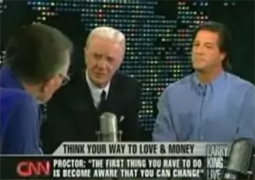 |
|
|
Bob
Proctor on The Larry King
Show
|
|
|
|
(Bob
continues to ask me more questions
which included inquiring about the
colors of my front door and the
refrigerator in my kitchen. I answer
his questions, eagerly awaiting his
explanation. I am becoming acutely
aware of the pictures that are
flashing, one by one, in my mind's
eye. I begin to get an inkling of
where he is going with this
exercise.)
Bob
Proctor: You see things in your
mind, don't you? You had to see your
car. When I said, "Think of
your car," what I am doing is,
I am activating vocal cords. I am
setting up a vibration… it's
actually a light message. Your
hearing sense is picking it up. It's
going firing down a nerve passageway
and striking a group of cells in
your brain. And when it hits those
cells in your brain, they are
activated and the picture that's in
them flashes on the screen of your
mind. We went from your car to your
door to your refrigerator. We could
go from your stove to your clothes
closet to your bed. You see how the
pictures keep jumping on the screen
of your mind? That's what language
is. Language activates cells of
recognition in your brain. Every
cell has a positive and a negative
pole. What do you like most about
your car?
PR.com:
The drive.
Bob
Proctor: What do you dislike most
about it?
PR.com:
It could have more traction in bad
weather.
Bob
Proctor: There you saw the positive
and the negative side of your car.
Well your car just is. Your car's
not a positive or a negative. There
are people that would like the fact
that it skids around because they
find that fun. You don't find it
fun. So there's positive and
negative pole in your brain, in
those cells that are clumped
together. It's a cluster of cells in
your brain that have pictures of
your car in it, and you can activate
what's good and what's bad in it,
can't you?
PR.com:
Yes.
Bob
Proctor: That's true with
everything. That's true with the
city you live in, the job you have,
your relationships with the people
you're related to; you can activate
positive or negative poles in the
cells. When you do, you set up a
vibration in your body. If you hold
your hand in front of you and look
at it, it's a molecular structure.
It's a mass of molecules at a very
high speed of vibration. It looks
solid, but the truth is, it's not.
It's a mass of energy that's
vibrating, and when you leave it,
it's still going to vibrate. The
body in a coffin is moving, if you
looked at it through the proper
microscope you would see that, or it
would never change to dust. See,
everything in the universe vibrates.
Well your mind and body vibrate.
Your mind is activity. Your brain is
the physical manifestation if that
activity, as the rest of your body
is. But you have the ability to
activate brain cells and set up a
vibration. Now the vibration that
you're in most of the time is going
to dictate the kind of people that
are attracted to you, and that
you're attracted to. If you're an
upbeat, positive, gregarious
individual you're not going to want
to be hanging out with people that
are always depressed or introverted.
That doesn't mean you're never
around them, but you're not going to
be attracted to them. We attract
everything into our life, and that's
how we attract it: according to the
vibration we're in. If you were
raised with the idea of poverty,
you've probably got that idea fixed
in your subconscious mind. You could
work your butt off all your life and
you're going to stay poor.
PR.com:
Is that because you are sending
vibrations out into the universe? In
other words, is it literal? Are my
vibrations literally connecting to
other vibrations in the universe
that are arranging the universe in
that way?
Bob
Proctor: Absolutely. But, you see,
it has to do with awareness. What
you have to do is raise your level
of conscious awareness. As I am
explaining some of these things,
you're developing an awareness.
You're becoming aware of something
about Allison. How old are you?
PR.com:
32.
|
|
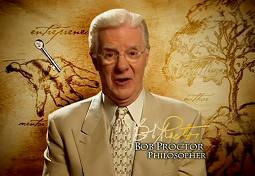 |
|
|
Bob
Proctor in The Secret
|
|
|
|
Bob
Proctor: Isn't it amazing that there
are things about you that you don't
even know, and you're 32 years old?!
You're living in one of the most
advanced countries in the world. How
does that happen? Well because we're
never taught these things. You go
through school and learn nothing
about this. You don't learn it at
home. You see, everything in life is
about awareness. We've always been
able to have the Internet. We've
just become aware of it. What we are
doing is developing a greater
awareness all the time, and as you
develop a greater awareness, you
start to see things that you
couldn't see before.
PR.com:
I'm interested in your particular
background, because I read that you
didn't have a formal education. You
didn't continue High School. And you
then met the gentleman whom you were
referring to before (Earl
Nightingale) which set you on this
path. How did these events transpire
in your life?
Bob
Proctor: I was on the fire
department in a suburb of Toronto. I
probably thought I was going to stay
there for the rest of my life. It
was the best job I'd ever had. I had
just worked in factories and bars
and things like that, prior. There
was a man I met, and he was a very
upbeat guy and he was always helping
people to do better than they were
doing. It was his way of life. And
he got me to read Napoleon Hill's
book, Think and Grow Rich. I
had never read a book up until that
point, and I was 26. I read that,
and it was like it set something on
fire inside of me. I had no formal
education. There were all kinds of
words in it that I didn't even
understand. I had become very
friendly with dictionaries, and I
would have to dig out a dictionary
and find out, "What's this word
mean, what's that word mean?"
He said, "If you do exactly
what this author says, you're life
will start to change." What I
really wanted was money. I was
earning four thousand dollars a year
at the time, but I owed six. So my
life was constantly trying to figure
out how to take care of this debt
and that debt. Well as long as
you're thinking "debt,"
you're going to stay in it, but I
didn't understand any of that. I set
a goal of having twenty-five
thousand dollars, and I didn't
believe it. He told me to write it
on a card and to carry the card in
my pocket and read it as often as
possible; at least every morning and
every night. I didn't even know
anyone with twenty-five thousand
dollars. But what it did, and it
took me years to figure this out, it
caused me to start to think of
earning money. Prior to that, I was
thinking about debt. There's your
polar opposite. When I was thinking
of earning money, I wasn't thinking
of debt. Then when I starting to
think about [money], I started to
hear people talking about it.
PR.com:
It shifted your focus.
Bob
Proctor: It did. It created a new
awareness. I became aware that there
were people talking about and that
there were people earning money, and
there were people earning a lot
of money. Someone said that there
was good money cleaning floors. I
said, "I'm not proud. I'll
clean floors." I had lots of
time off from the fire department,
so I started to clean one office and
then another and then another.
Pretty soon, I was earning a few
thousand [dollars] a month. I
thought I'd died and gone to heaven.
Well, one day I passed out on the
street [from exhaustion]. If you're
one of those people that believe
that hard work and honesty alone
will bring riches, perish the
thought, because it's not true.
Riches come in responding to
definite demands, based upon the
application of definite principals,
and not by chance or luck. I thought
it was hard work. I worked myself
into exhaustion, and I passed out in
the street. So then I got all
dressed up and I got other people
cleaning offices. Pretty soon I was
cleaning offices in Toronto,
Montreal, Boston, Cleveland,
Atlanta, London… and my income
went over one million dollars. I
realized that the secret to earning
a lot of money is to have multiple
sources of income. You don't trade
time for money. That's the worst way
to earn money! And that's what the
masses do. That's what school
teaches. 96% of our population trade
time for money. It's a fool's game,
because it's got an inherent
problem. It's called saturation. You
run out of time. So I started to
learn things about money that school
doesn't teach you. The secret to
earning a lot of money is to
multiply your time but setting up
multiple sources of income.
PR.com:
In other words, shifting your
awareness will inspire a new way of
thinking…
Bob
Proctor: Wayne Dyer puts it very
well. He says, "When you change
the way you look at things, the
things you look at will
change."
PR.com:
And you also say in your seminars,
that somebody once told you that in
order to change your life, you need
to change your life. Can you
define that?
|
|
 |
|
|
Bob
Proctor on The Ellen
DeGeneres Show
|
|
|
|
Bob
Proctor: In other words, when
talking about changing your life,
you're talking about your results.
You're talking about your income,
how you spend your days, and who you
spend your days with. Well in order
to do that you have to change
inside: your way of thinking, your
feelings and your actions.
PR.com:
Why and how did you change?
Bob
Proctor: I changed because I changed
the paradigm. I changed my
conditioning. It took me nine years
to figure it out. You're conditioned
to operate the way you operate. You
have ideas fixed in your
subconscious mind. They're both
genetic and environmental. You look
like your relatives because of
genetic conditioning. The form of
your body and the structure of your
features, that's genetic
conditioning. That's in your gene
pool, and it goes back generations.
Once you're born, it's environmental
conditioning. If you were raised in
a home in the suburbs of Beijing,
you would not be speaking English
right now. You'd speak fluent
Chinese. You're a linguistic genius
at birth. You will learn the
language of the people you're
surrounded by. You will learn
according to their level of
awareness. You can teach a baby to
read before it can talk. Now since
most people don't know that, they're
not doing it. But some do know that,
and they're doing it. So we are
conditioned mentally. People who are
living on welfare are generally
fourth or fifth generation welfare
recipients. That is programming in
our subconscious mind. Programming
is nothing but ideas, through
repetition, become fixed in the
subconscious and when you put them
all together it's called a paradigm.
PR.com:
What is the difference between just
positive thinking, versus what you
do, in getting yourself into a
positive vibration?
Bob
Proctor: If you go back into
proverbs in the Christian Bible,
Solomon said, "As a man
thinketh in his heart." Not as
a man thinketh, but as a man
thinketh in his heart. The
subconscious mind, the early Greeks
referred to as "the
heart." As a person thinketh in
their subconscious mind, so are
they. There's a beautiful word, it's
called Praxis. Praxis is the
integration of belief with behavior.
There are certain things you'll say,
"I believe that," and yet
your behavior would indicate that
you've never heard of it. Pay
attention to people when they say,
"I believe that," but they
don't do it. Why? On a conscious
level they believe something. They
consciously and intellectually
understand it, but their paradigm is
programmed the opposite way.
PR.com:
How does one turn an intellectual
connection into an emotional
connection?
Bob
Proctor: Through the repetition of
presenting it to your emotional
mind. There's only two ways to
change a paradigm: one is an
emotional impact. That's something
just hitting you so hard, that your
life will never be the same again.
It's usually of a negative nature,
but since everything is positive and
negative, it can be a positive
thing. That's when you're really
jarred. The other way is through
repetition. It's through the
presenting of ideas over and over
again. I remember as a little kid in
school, if I was late for school,
the teacher would have me write a
hundred times, "I'm late for
school. I'm late for school."
What she didn't understand was that
she was programming me to be late
for school (laughs). Anything
that you write over and over again,
repeatedly, becomes fixed in the
subconscious mind.
PR.com:
(Laughs) I never thought of
it that way. What is your opinion
regarding the concept of traditional
therapy, where somebody goes week
after week and they vent to a
therapist about the troubles in
their life?
Bob
Proctor: I think it's a gross waste
of time. I think the therapist
doesn't understand what the hell
they're doing, which is the probable
reason that there's such a high
degree of suicide amongst them. And
they are reinforcing the negative. I
say, let it go! Overpower it with
the positive! That's what I did. I'm
happy, healthy and wealthy. I'm
almost 73 years old. I've got more
energy than most people 23. I've
been around the world in the last week!
PR.com:
How many countries have you been to
in the past week?
Bob
Proctor: Oh, I don't know; quite a
few. Tomorrow I've got to be in
Orlando for a meeting, then I've got
to go from there to Phoenix the next
day for a meeting, then I've got to
come back to New York to tape Nightline
and then back to Toronto. I think
nothing of this. I mean it's just in
a day's work.
(My
conversation with Bob Proctor
digressed, briefly, to the topic of
constant motion and the anxiety that
it produces, especially as it
pertains to flying as well as the
lack of downtime. At this point he
made a jewel of a statement that
will stay with me throughout my life
as I think it is very wise. After
listing to some reasons why I become
anxious at the thought of my
schedule becoming too packed, he
simply replied, "I don't think
we need to slow down. I think we
need to calm down." I don't
know why I had never before made
this distinction, but there
certainly is a distinction to be
made.)
Bob
Proctor: I stay in a very relaxed
state. I don't let things throw me
off. I am not the plaything for
what's going on outside of me.
PR.com:
So it seems that this all goes back
to the images that you are holding
in your mind.
Bob
Proctor: Absolutely!
PR.com:
Why do you think stress is such an
epidemic?
Bob
Proctor: Ignorance. People don't
know who they are, and they're
getting uptight. That thing you're
living in, you call a body, is so
tense. The body is supposed to be
relaxed. I remember, Branch Rickey,
he ran the Brooklyn Dodgers before
they went to Los Angeles. He said
that he didn't care how fast a guy
could run or how well he could hit a
ball, or how well he could throw the
ball, or how well he could catch. He
said, "If he wasn't as loose as
ashes," he didn't want him on
the team. Any professional sports
coach will tell you that the
person's got to be relaxed. That's
the way we're supposed to live. When
you are loose, energy flows freely
through you. You're just a channel
for spirit to operate through.
PR.com:
How can people use the principles of
The Secret to become more
centered and eliminate stress in
their lives?
Bob
Proctor: To understand the
principles of The Secret, we
have to go back and understand
ourselves. We're the ones that set
up what we attract. I believe we
have to gain an understanding of how
the mind functions. There's a Doctor
Mike in Florida. Both he and his
wife, Susan, are psychiatrists. John
Mike said that I taught him more
about the mind in one year, than he
had learned in 4 years of medical
school and 5 years of psychiatric
training. Here is a medical
professional, a psychiatrist, who
openly admitted they didn't teach
him what I taught him. School does
not teach us about who we are. So
here we are, going around, and we
don't know ourselves. And yet, you
can teach this to a little kid. If
you can teach a child the English
language, you can certainly teach
them how the mind functions. I have
taught this to teenagers and the
teenagers get it so fast, it would
make your head spin! But, you see,
the teenagers are making up their
minds. We've got to change
our mind.
PR.com:
How can we change our vibrations, to
create a body that feels loose and
unstressed?
Bob
Proctor: You would gain an
understanding of how the mind
functions, and then you would start
going through exercises to
re-program your subconscious mind.
As you re-program your subconscious
mind, you will see evidence of it in
your material world; in your
relationships, in the health that
you enjoy. Now, am I doing [this]
perfectly? No, because I'm not
[always] aware. The more aware I
become, the better I'm going to do.
PR.com:
Would you say that positive
visualization is a fair term?
Bob
Proctor: Visualization will do it if
you are visualizing the same thing
over and over, and you are
emotionally letting yourself get
involved with it. I teach people to
become actors. There's a wonderful
book called, The Art of Acting
by Stella Adler. She was Marlon
Brando's teacher. It's the
transcripts of classes she
conducted, and living is really
acting. If we would see how actors
operate, they take a script and they
read it and re-read it and memorize
the script. Then they internalize
the script, and then they become
the script. Well that's what we have
to do. We have to write our own
script. "How do I really want
to live?" And then we've got to
internalize it and become it. When
you watch great acting, they're not
acting. They're living the part.
PR.com:
So then in our own lives, we need to
play the part that we want to be…
Bob
Proctor: Absolutely…
intellectually, emotionally, and
physically. But you know where the
real big hang up comes in? We're
worried about what somebody else
thinks. When you were a little girl,
your mother would say, "What
would the neighbors think?!"
Well I found out… they don't (laughs).
PR.com:
(Laughs) Exactly! Everyone is
too wrapped up in their own lives.
Bob
Proctor: The Secret is a
phenomenon! And it's a phenomenon
because it resonates with the soul.
I believe you are a soul. I don't
think you have one. I think you are
one. And the soul is forever seeking
its awareness of its oneness with
what I refer to as God. And the more
aware you become of your oneness
with this wonderful and infinite,
creative power, the more it's going
to be reflected in your results.
|
|
 |
|
|
|
|
|
|
PR.com:
The film, The Secret, kind of
found me. Several friends had
mentioned it to me on more than one
occasion, and I remember promising
one friend I was going to watch it,
but I was just paying lip service to
it. Then I was invited to a viewing
party for The Secret and I
didn't go because I was busy that
particular night. And then I met
someone who did a psychic reading
for me and he looked at me and he
said, "There is a movie that I
want you to watch, because I think
it will help you. It can help you to
literally start to change your life
in a matter of minutes." He
gave me the website address for The
Secret (www.thesecret.tv) and
sent me on my way. It was trippie.
It kept showing up like a bad penny,
until I finally sat down and watched
it, and it really spoke to me. I'd
never found anything like that
before.
Bob
Proctor: There's something in you
that wants to grow. You're probably
destined to do something really
good; I mean really good work. This
creative urge within you seeks
expression with and through you, and
this is almost like a key that
opened that door. I know that's what
it was with me, way back when I
picked up that book. I have helped
hundreds of thousands of people all
over the world. I love it, and I'm
going to do it until I die. This is
a very complicated subject to teach,
and I know very few people who know
how to teach it. I don't know all
the people on The Secret, so
I don't know whether they can teach
it or not. But I have been teaching
this now for 38 years, and I've had
some phenomenal teachers. The one
thing I recognized when I saw it…
Rhonda Byrne (producer of The
Secret) has a genius. Her genius
was in putting this together as she
has. Her's is the creative mark that
is on [The Secret].
PR.com:
Do you know what caused Rhonda Burn
to research this subject and to
pursue it? Has she ever told you her
story of why she put The Secret
together?
Bob
Proctor: She was in a bad way. She
was not winning. And she was given
the book, The Science of Getting
Rich. That book did something to
her, like [the book] Think and
Grow Rich did with me. We have a
program that we teach, and we teach
the science of getting rich, and
there is a science to it. People
knock earning money. You can do a
lot of good with money! It's the
medium of exchange that we use for
other people's products and
services. Money is only used for two
things: one is to make you
comfortable, and the more
comfortable you are, the more
creative you can be. And the other
is to extend the service that you
render, far beyond your own
presence. But, she was moved by that
book. And I think if you had asked
her while she was [producing The
Secret], she couldn't tell you
why. She just knew that she had to
do it. I just hope she's strong
enough to stand up to the criticism
that she's having fired at her. But
I would imagine she is.
PR.com:
The backlash seems very recent and
it appeared to unfold after Oprah
talked about The Secret…
Bob
Proctor: The reaction is, people
don't like being changed. We hear
that people resist change. That's
not true. People openly accept
change when they decide to
change. If I come along and said,
"Allison, you have to do
it this way," you'd probably
react to that. You'd resist it. But
if you decide to do it this
way, then you adapt to it. Well,
this is causing people to change and
they're reacting. They don't like
it. The truth is, this is waking
people up in large numbers and it's
not going to go away. You've heard
the saying, "When you hear the
truth, you'll know it." Well,
there's a reason for that. It
resonates with the soul.
PR.com:
I saw that you were billed as 'A
Philosopher' in the film…
Bob
Proctor: That wasn't my call. I had
to go look up what a philosopher
is…
PR.com:
Oh, because I was going to ask you
that. How would you define a
philosopher?
Bob
Proctor: I don't call myself a
philosopher, although, at times I
guess I would be. It's a person
that's searching for the truth
through reason, rather than through
scientific facts. You're searching
through your own way of thinking,
and you don't have to prove it to
anybody. And you're sharing your
views with people; usually sharing
your thoughts. It's of an esoteric
nature.
PR.com:
It's funny because I was trying to
figure it out. I know that when I
was in college, you could take
philosophy courses or major in it,
and I thought, "Is it a job, or
a career, or just a state of
being?"
Bob
Proctor: I think it's more of a
mental state that you're in. There
are people that just philosophize.
They just talk about it and they
never do anything. They never
internalize the information. I am
very high on internalizing it. I
believe that learning is when you
consciously entertain an idea, you
get emotionally involved in that
idea, you step out and act on the
idea and you change the result. The
feedback to your consciousness of
the change in result… that's the
learning experience.
(Bob
points out to me the distinction in
what he believes is the true
learning process versus what school
and traditional learning would have
us believe. He describes the process
of listening to and memorizing
facts, followed by being tested on
those facts by way of an exam, as a
largely ineffective learning
process, and one that most of us
have become accustomed to.)
|
|
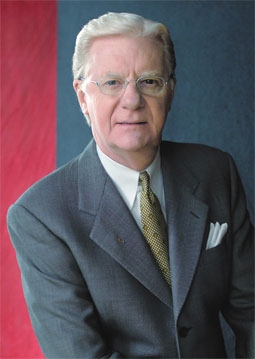 |
|
|
|
|
|
|
Bob
Proctor: We're raised to live
through our senses. We're raised to
go by what we hear, see, smell,
taste and touch. As little kids [we
hear], "Will you look at what
I'm showing you? Will you listen to
what I'm telling you?" Then we
go to school, and what do we get? We
get a report card. The school sends
home a piece of paper with
information on it, and that's
telling the parent, and telling the
student what kind of a student they
are. It's absurd! That tells
everybody where the student's mind
was at for a few minutes, maybe
three weeks ago. But we're raised to
let that piece of paper we call a
report card, determine our self
worth as a student. Then when we
leave school, we are in the habit of
doing this. We let the balance
sheet, we let the sales sheet, and
we let the x-ray tell us what's
going on in our world. We're
programmed to live from the outside
in, but we're built to live from the
inside out.
PR.com:
One thing that I find a lot, and
tell me if you agree, is that people
who's true intention is to serve and
to share something, oftentimes they
reap huge financial benefits in the
process.
Bob
Proctor: Well, yeah. Money is a
reward for service rendered. Money
is an instrument. It's also a
magnifier. Money will just make you
more of what you already are.
PR.com:
It's funny that you say that,
because I'm working on an article
entitled, "Money is a
Magnifying Glass."
Bob
Proctor: Rhonda Burn (producer of
The Secret) was a nice person
before she started to earn any
money. I knew her when she had to
borrow money to get the film out
there. Well now that she's earning
millions, I don't need to wonder
what she's going to do. I know what
she's going to do. She's going to do
a lot of good with it.
Bob
Proctor is one of the dynamic
teachers from the phenomenal
documentary, 'The Secret,' as well
as a world renowned life coach and
personal consultant. For more
information on Bob Proctor, visit
www.bobproctor.com.
|
|
|
Of
Interest to Those Born After 1979
QUOTE
OF THE MONTH
BY
JAY LENO.
TO
ALL THE KIDS WHO SURVIVED the 1930's, 40's, 50's, 60's and
70's!!
First,
we survived being born to mothers who smoked and/or drank
while they were pregnant.
They took
aspirin, ate blue cheese dressing, tuna from a can, and didn't
get tested for diabetes.
Then after that
trauma, we were put to sleep on our tummies in baby cribs
covered with bright colored lead-based paints.
We had no
childproof lids on medicine bottles, doors or cabinets and
when we rode
our bikes , we had no helmets, not to mention, the risks we
took hitchhiking.
As infants
& children, we would ride in cars with no car seats,
booster seats, seat belts or air bags.
Riding in the
back of a pick up on a warm day was always a special treat.
We drank
water from the garden hose and NOT from a bottle.
We shared one
soft drink with four friends, from one bottle and
NO ONE actually
died from this.
We ate
cupcakes, white bread and real butter and drank Kool-aid made
with sugar, but we weren't overweight because,
WE WERE ALWAYS OUTSIDE PLAYING!
We would leave
home in the morning and play all day, as long as we were back
when the streetlights came on.
No one was able
to reach us all day. And
we were O.K.
We would
spend hours building our go-carts out of scraps and then ride
down the hill, only to find out we forgot the brakes. After
running into the bushes a few times, we learned to solve the
problem.
We did not have
Playstations, Nintendo's, X-boxes, no video games at all, no
150 cha nnels on cable, no video movies or DVD's, no
surround-sound or CD's, no cell phones, no personal computer!
s, no Internet or chat rooms.......
WE HAD FRIENDS and we went outside and found them!
We fell out
of trees, got cut, broke bones and teeth and there were no
lawsuits from these accidents.
We ate worms
and mud pies made from dirt, and the worms did not live in us
forever.
We were given BB
guns for our 10th birthdays, made up games with sticks and
tennis balls and, although we were told it would happen, we
did not put out very many eyes.
We rode bikes
or walked to a friend's house and knocked on the door or rang
the bell, or just walked in and talked to them!
Little League had
tryouts and not everyone made the team. Those who didn't had
to learn to deal with disappointment. Imagine that!!
The idea of a
parent bailing us out if we broke the law was unheard of. They
actually sided with the law!
These
generations have produced some of the best risk-takers,
problem solvers and inventors ever!
The past 50 years
have been an explosion of innovation and new ideas.
We had freedom, failure, success and responsibility, and we
learned HOW TO DEAL WITH IT ALL!
If YOU are
one of them? CONGRATULATIONS!
You might want to
share this with others who have had the luck to grow up as
kids, before the lawyers and the government regulated so much
of our lives for our own
good.
While you are at it, forward it to your kids so they will know
how brave (and lucky) their parents were.
Kind
of makes you want to run through the house with scissors,
doesn't it?!
The quote of
the month is by Jay Leno:
"With hurricanes, tornados, fires out of control, mud
slides, flooding, severe thunderstorms tearing up the country
from one end to another, and with the threat of bird flu and
terrorist attacks, are we sure this is a good time to take God
out of the Pledge of Allegiance?"
For those that
prefer to think that God is not watching over us...go ahead
and delete this.
For the rest of us...pass this on.
|
|
Become
A Better Listener
~~~~~~~~~~~~~~~~~~~~~~~~~
The
simplest approach to becoming a better listener…
Focus first on giving others your complete attention. Once you
feel confident you've improved, begin becoming more consistent
in adding a small gap of silence between what's said by
someone else and your response. Finally, work more to minimize
interruptions.
~ give complete attention
~ maintain eye contact and face the speaker
acknowledge key points with a nod, smile or brief comment
("I see," "I understand,"
"right," etc.)
~ dismiss distractions and acknowledge phones, email, instant
messengers and other people following the current interaction
~confirm understanding by rephrasing pertinent discussion
issues
Add a gap of silence
~ add a small gap of silence between what the speaker says and
your response - just an extra beat or two… this will help
you minimize any tendency to interrupt and may encourage
others to open up and share more (giving you the opportunity
to learn more)
Minimize Interruptions
~ wait for the person to pause fully before asking questions
to clarify
~ if you absolutely have to interrupt, a quick "I'm
sorry, but [explain the crisis/problem/situation]…" is
polite
~ if you need to interrupt a conversation at work, say either
"I'm sorry, I need this addressed…" (if you're the
boss) or "I'm sorry, this interruption is
unavoidable…" (if you're an employee)
~ in any situation, make absolutely sure that what you have to
say is worth the interruption
|
|
Earl
Nightingale
|
In
his excellent book, On Becoming a Person, Dr.
Carl Rogers spelled out some of the
characteristics of the new, powerful person
who is emerging in our culture today...and the
vital, different set of values he both
maintains and lives. "I stressed,"
he writes, "his hatred of phoniness, his
opposition to all rigidly structured
institutions, his desire for intimacy,
closeness and community, his willingness to
live by new and relatively moral and ethical
standards, his searching quality, his openness
to his own and others' feelings, his
spontaneity, his activism and his
determination to translate his ideals into
reality. I am talking," he wrote,
"about a relatively small number of
people. But I believe that these people
constitute the change agents of the future.
When some part of a culture is decayed at the
core, a small group with new views, new
convictions, and a willingness to live in new
ways, is a ferment that cannot be
stopped." |
Let's take a
look at that new person emerging in our
culture and see if you and I qualify.
First - his
hatred of phoniness. Our new powerful person
sees through facades and tinsel...outmoded
and ridiculous customs and beliefs. Free of
the tyranny of things and the opinions of
others, he and his family...she and her
family...live in a kind of solid serenity
where true values count; where the verities,
things like truth and justice, the family
and work, take on real meaning. It is in the
avoidance of phoniness that real freedom may
be found...and one can drop off the rat race
with a great sigh of relief. There are no
inner circles to which these people need
apply for membership; they are the centers
of their own circles.
This person
is opposed to all rigidly structured, closed
institutions. Such institutions are saying,
by the fact that they are rigidly structured
and closed, "We have the answers...we
need look no further...this is it." The
new, powerful person knows that at this
early stage of our development, such
thinking is infantile. We do not have all
the answers...about anything. And just as
the maturing person is in a stage of growth,
of becoming - so is a vital institution. It
uses what it has and what it knows as
springboards into the future...and
assiduously avoids becoming closed and
rigidly structured. A good and viable
institution, like a self-actualizing person,
is always in a state of growth...of
becoming.
He has a
desire for intimacy...closeness and
community, and a willingness to live by new
and relatively moral and ethical standards.
This person has a searching quality and an
openness to his own and others' feelings. He
is spontaneous, unafraid of what others will
say of his enthusiasms and ideas...and is
determined to translate his ideas and ideals
into reality.
Of course
these people must constitute a relatively
small number of people...a true inner
circle, the most important and influential
club of human beings on earth. The
qualifications for membership are tough: To
meet them takes work, thought and study...a
willingness to find oneself and be oneself.
But the perquisites of membership are great
indeed! One of them is freedom...another is
joy.
Earl
Nightingale
|
|
|
|
George
Carlin's Views on Aging
Do
you realize that the only time in our lives when we like to
get old is when we're kids? If you're less than 10 years old,
you're so excited about aging that you think in fractions.
"How old are you?" "I'm four and a half!"
You're never thirty-six and a half. You're four and a half,
going on five! That's the key
You get into your teens, now they can't hold you back. You
jump to the next number, or even a few ahead.
"How old are you?" "I'm gonna be 16!" You
could be 13, but hey, you're gonna be 16! And then the
greatest day of your life . . you become 21. Even the words
sound like a ceremony . YOU BECOME 21. YESSSS!!!
But then you turn 30. Oooohh , what happened there? Makes you
sound like bad milk! He TURNED; we had to throw him out.
There's no fun now, you're Just a sour-dumpling. What's wrong?
What's changed?
You BECOME 21, you TURN 30, then you're PUSHING 40. Whoa! Put
on the brakes, it's all slipping away. Before you know it, you
REACH 50 and your dreams are gone.
But wait!!! You MAKE it to 60. You didn't think you would!
So you BECOME 21, TURN 30, PUSH 40, REACH 50 and MAKE it to
60.
You've built up so much speed that you HIT 70! After that it's
a day-by-day thing; you HIT Wednesday!
You get into your 80's and every day is a complete cycle; you
HIT lunch; you TURN 4:30; you REACH bedtime. And it doesn't
end there. Into the 90s, you start going backwards; "I
Was JUST 92."
Then a strange thing happens. If you make it over 100, you
become a little kid again. "I'm 100 and a half!"
May you all make it to a healthy 100 and a half!!
HOW TO STAY YOUNG
1. Throw
out nonessential numbers. This
includes age, weight and height. Let the doctors worry about
them. That is why you pay "them."
2. Keep
only cheerful friends. The
grouches pull you down.
3. Keep
learning.
Learn more about the computer, crafts, gardening, whatever.
Never let the brain idle. "An idle mind is the devil's
workshop." And
the devil's name is Alzheimer's.
4. Enjoy
the simple things.
5.
Laugh often,
long and loud. Laugh until you gasp for breath.
6. The
tears happen. Endure,
grieve, and move on. The only person, who is with us our
entire life, is ourselves. Be ALIVE while you are alive.
7. Surround
yourself with what you love
, whether it's family, pets,
keepsakes, music, plants, hobbies, whatever. Your home is your
refuge. (GOD will be there with you)
8. Cherish
your health: If
it is good, preserve it. If it is unstable, improve it. If it
is beyond what you can improve, get help.
9. Don't
take guilt trips.
Take a trip to the mall, to the next county, to the next
state, even to a foreign country but NOT to where the guilt
is.
10.
Tell the people you love that you love them,
at every opportunity. (Make sure you tell GOD)
AND ALWAYS REMEMBER :
Life is not measured by the number of breaths we take, but
by
the moments that take our breath away.
And if you don't send this to at least 8 people - who cares?
But do share this with someone. We all need to live life to
its fullest each day!!
(With GOD) .........Amen!!
|
|
Working
With The Law |
|
Working The Law
– the key fundamental section which will enable you to
use these teachings right away and change your results
from day one.
|
|
The Law of
Thinking – one of the most important laws to
understand and apply, this law is fundamental to success
and many of the others depend on this law, with this law
alone you have the power to change your world. You'll
learn the true meaning of thought and thinking – how
to direct your power of thought into constructive
channels of expression.
|
|
The Law of
Supply – this is where you'll learn the truth
that there are no limits except the ones which we create
ourselves, that you live in a world of abundance where
you can have, do and be anything you truly desire.
|
|
The Law of
Attraction – this takes you on from The
Secret, and into the practical application of Desire,
Expectation and Achievement. How to be happy and
grateful for what you have, and also to continually grow
– through constant expansion and fuller expression of
your true potential.
|
|
The Law of
Receiving – the first law of creation -
you'll find out how this Law is paradoxically about
giving, and how to start the process of receiving in
your own life.
|
|
The Law of
Increase – which can easily be seen as the
Law of Praise, this is one area where you can create
instant results, through two simple approaches, which
Bob and Mary explain in detail with examples.
|
|
The Law of
Compensation – understanding this law can be
“The key to all the dreams you ever had” – where
Bob and Mary teach you how to lift yourself out of the
place you are, to the place where you rightfully belong,
and at the same time show you how to avoid the three
common traps that will undermine your application of
this law.
|
|
The Law of
Non-Resistance – how, by relaxing and
understanding, you can return to your natural state of
abundance. Obstacles disappear, and you will learn that
the only true limits are the ones you set through your
thinking.
|
|
The Law of Forgiveness
– you learn the powerful lesson of how to shift your
perception, which removes the block to your awareness of
love, abundance and success. This powerful section shows
you how important it is to be able to feel the vibration
you are in, and also change it through your conscious
choice.
|
|
The Law of
Sacrifice – this often misunderstood law
includes the process of harnessing our powers toward a
desired end – the giving up of something of a lower
nature to receive something of a higher nature – in
response to perhaps the most important question you can
ask yourself: what do you really want? It clarifies the
notion of disciplined thinking – and how this is an
essential aspect of your personality which needs
cultivating – and shows you how to do that.
|
|
The Law of
Obedience – the final and perhaps best way to
conclude – understanding that to create true abundance
and success, we must be obedient to the laws we have
come to understand – for only through working in
harmony with the laws, can our results match our desires
and dreams.
Universal
Laws
1. The Law of Divine Oneness:
The Law of Divine Oneness helps us to understand that we
live in a world where everything is connected to
everything else. Everything we do, say, think and believe
affects others and the universe around us.
2. The Law of Vibration:
This Universal Law states that everything in the Universe
moves, vibrates, and travels in circular patterns. The
same principles of vibration in the physical world apply
to our thoughts, feelings, desires, and wills in the
Etheric world. Each sound, thing, and even thought has its
own vibrational frequency, unique unto itself.
3. The Law of Action:
The Law of Action must be applied in order for us to
manifest things on earth. Therefore, we must engage in
actions that support our thoughts, dreams, emotions and
words.
4. The Law of Correspondence:
This Universal Law states that the principles or laws of
physics that explain the physical world – energy, Light,
vibration, and motion – have their corresponding
principles in the etheric or universe. “As above, so
below.”
5. The Law of Cause and Effect:
This Universal Law states that nothing happens by chance
or outside the Universal Laws. Every action has a reaction
or consequence and we “reap what we have sown.”
6. The Law of Compensation:
This Universal Law is the Law of Cause and Effect applied
to blessings and abundance that are provided for us. The
visible effects of our deeds are given to us in gifts,
money, inheritances, friendships, and blessings.
7. The Law of Attraction:
This Universal Law demonstrates how we create the things,
events, and people that come into our lives. Our thoughts,
feelings, words, and actions produce energies which, in
turn, attract like energies. Negative energies attract
negative energies and positive energies attract positive
energies.
8. The Law of Perpetual Transmutation of Energy:
This Universal Law states that all persons have within
them the power to change the conditions in their lives.
Higher vibrations consume and transform lower ones; thus,
each of us can change the energies in our lives by
understanding the Universal Laws and applying the
principles in such a way as to effect change.
9. The Law of Relativity:
This Universal Law states that each person will receive a
series of problems (Tests of Initiation) for the purpose
of strengthening the Light within. We must consider each
of these tests to be a challenge and remain connected to
our hearts when proceeding to solve the problems. This law
also teaches us to compare our problems to others’
problems and put everything into its proper perspective.
No matter how bad we perceive our situation to be, there
is always someone who is in a worse position. It is all
relative.
10. The Law of Polarity:
This Universal Law states that everything is on a
continuum and has an opposite. We can suppress and
transform undesirable thoughts by concentrating on the
opposite pole. It is the law of mental vibrations.
11. The Law of Rhythm:
This Universal Law states that everything vibrates and
moves to certain rhythms. These rhythms establish seasons,
cycles, stages of development, and patterns. Each cycle
reflects the regularity of God’s universe. Masters know
how to rise above negative parts of a cycle by never
getting too excited or allowing negative things to
penetrate their consciousness.
12.
The Law of Gender:
This Universal Law states that everything has its
masculine (yang) and feminine (yin) principles, and that
these are the basis for all creation. The spiritual
Initiate must balance the masculine and feminine energies
within herself or himself to become a Master and a true
co-creator with God. |
|
|
Live
A Life That Matters
Ready
or not, someday, it will all come to an end.
There
will be no more sunrises, no minutes, hours, or days.
All
the things you collected, whether treasured or forgotten, will
pass on.
Your
wealth, fame and temporal power, will shrivel to irrelevance.
It
will not matter what you owned, or what you were owed.
Your
grudges, resentments, frustrations, and jealousies, will
finally disappear...
So,
too, your hopes, ambitions, plans, and the "to-do"
lists.
The
wins and losses, that once seemed so important, will fade
away.
It
won't matter where you came from, or on what side of the
tracks you lived.
It
won't matter whether you were beautiful or brilliant...
Even
your gender and skin color, will be irrelevant.
So
what will matter? How will the value of your days be measured?
What will matter is not what you bought, but what you built.
What
will matter is not what you got, but what you gave.
What
will matter is not your success, but your significance.
What
will matter is not what you learned, but what you taught.
What
will matter is every act of integrity, compassion, courage or
sacrifice,
that enriched, empowered or encouraged others, to emulate your
example.
What
will matter is not your competence, but your character.
What
will matter is not how many people you knew, but how many will
feel a deep, lasting loss, when you're gone.
What
will matter are not your memories, but the memories that live
in those who loved you.
What
will matter is how long you will be remembered, by whom and
for what.
Living a life that matters, doesn't happen by accident, nor a
matter of circumstances, but of choice.
We
all have that choice...
~ ~ Author - Michael Josephson
|
|
10
Things Authentic Leaders Do
|
|
|
What
would your life look like if you had
absolutely no fear? What kinds of
things would you do if you lived
from a frame of reference that your
thoughts literally could form your
world? How brightly would your light
shine if you stepped out of the
limitations that are keeping you
small, and stretched yourself well
past your comfort zone into the
place that you know, deep within,
you are meant to be? Authentic
leadership is all about being the
person you know in your heart you
have always been destined to be.
Authentic leadership does not come
from your title or from the size of
your paycheck. Instead, this form of
leadership comes from your being and
the person that you are.
Here
are 10 things that authentic leaders
do on a regular basis:
1.
They speak their truth. In
business today, we frequently
'swallow our truth'. We say things
to please others and to look good in
front of The Crowd. Authentic
leaders are different. They
consistently talk truth. They would
never betray themselves by using
words that are not aligned with who
they are. This does not give anyone
a license to say things that are
hurtful to people. Speaking truth is
simply about being clear, being
honest, and being authentic.
2.
They lead from the heart.
Business is about people. Leadership
is about people. The best leaders
wear their hearts on their sleeves
and are not afraid to show their
vulnerability. They genuinely care
about other people and spend their
days developing the people around
them. They are like the sun: the sun
gives away all it has to the plants
and the trees. But in return, the
plants and the trees always grow
toward the sun.
3.
They have rich moral fiber.
Who you are speaks far more loudly
than anything you could ever say.
Strength of character is true power
-- and people can feel it a mile
away. Authentic leaders work on
their character. They walk their
talk and are aligned with their core
values. They are noble and good. And
in doing so, people trust, respect,
and listen to them.
4.
They are courageous. It
takes a lot of courage to go against
the crowd. It takes a lot of courage
to be a visionary. It takes a lot of
inner strength to do what you think
is right even though it may not be
easy. We live in a world where so
many people walk the path of least
resistance. Authentic leadership is
all about taking the road less
traveled and doing, not what is
easy, but what is right.
5.
They build teams and create
communities. One of the
primary things that people are
looking for in their work experience
is a sense of community. In the old
days, we got our community from
where we lived. We would have block
parties and street picnics. In the
new age of work, employees seek
their sense of community and
connection from the workplace.
Authentic leaders create workplaces
that foster human linkages and
lasting friendships.
6.
They deepen themselves. The
job of the leader is to go deep.
Authentic leaders know themselves
intimately. They nurture a strong
self-relationship. They know their
weaknesses and play to their
strengths. And they always spend a
lot of time transcending their
fears.
7.
They are dreamers. Einstein
said that "Imagination is more
important than knowledge." It
is from our imaginations that great
things are born. Authentic leaders
dare to dream impossible dreams.
They see what everyone else sees and
then dream up new possibilities.
They spend a lot of time with their
eyes closed creating blueprints and
fantasies that lead to better
products, better services, better
workplaces, and deeper value. How
often do you close your eyes and
dream?
8.
They care for themselves.
Taking care of your physical
dimension is a sign of self-respect.
You can't do great things at work if
you don't feel good. Authentic
leaders eat well, exercise, and care
for the temples that are their
bodies. They spend time in nature,
drink plenty of water, and get
regular massages so that,
physically, they are operating at
planet-class levels of performance.
9.
They commit to excellence rather
than perfection. No human
being is perfect. Every single one
of us is a work in progress.
Authentic leaders commit themselves
to excellence in everything that
they do. They are constantly pushing
the envelope and raising their
standards. They do not seek
perfection and have the wisdom to
know the difference. What would your
life look like if you raised your
standards well beyond what anyone
could ever imagine of you?
10.
They leave a legacy. To
live in the hearts of the people
around you is to never die. Success
is wonderful, but significance is
even better. You were made to
contribute and to leave a mark on
the people around you. In failing to
live from this frame of reference,
you betray yourself. Authentic
leaders are constantly building
their legacies by adding deep value
to everyone that they deal with and
leaving the world a better place in
the process.
|
|
|
|
|
|
 If
you have 10 reasons to be sad and depressed, there are
100 reasons to be happy. It all depends on the way you
handle stress and problems. If you really want to be
happy, you first need to make a conscious decision
that you are going to be happy no matter what. There
are numerous benefits of being happy - you will be
more healthier and have a positive outlook towards
life.
If
you have 10 reasons to be sad and depressed, there are
100 reasons to be happy. It all depends on the way you
handle stress and problems. If you really want to be
happy, you first need to make a conscious decision
that you are going to be happy no matter what. There
are numerous benefits of being happy - you will be
more healthier and have a positive outlook towards
life.









 choices and today's world offers more
choices than at any other time in history. Which choices
you make now as a young adult will determine what kind of life you
will have in your
future.
choices and today's world offers more
choices than at any other time in history. Which choices
you make now as a young adult will determine what kind of life you
will have in your
future. 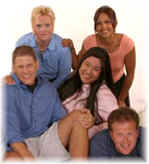




















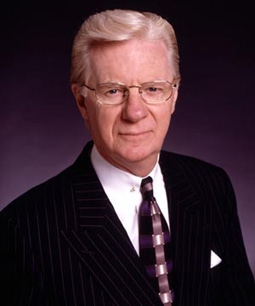



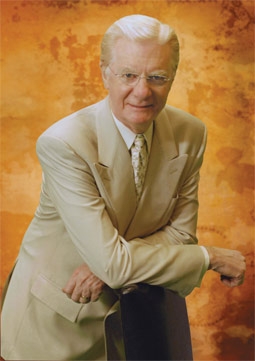


 LINKS
of WISDOM
LINKS
of WISDOM


